The First Spark: How 8 Women Turned Small Acts Into Big Change
Big change starts small. No one starts out as a historic leader. These eight women changed history. Each of them faced a big problem and took a first step that sparked momentum.
1. Fannie Lou Hamer chose to vote
Among her achievements
Hamer co-founded the National Women’s Political Caucus and launched the Freedom Farm Cooperative.
The big problem
In Mississippi in 1962, only 5.3% Black people were registered to vote. Literacy tests, poll taxes, and white supremacist violence kept registration low. Hamer only learned that Black people could vote when she attended a civil rights meeting in 1961.
Her first spark
Trying to vote. On August 31, 1962, Hamer led 17 volunteers to register. They failed unfair literacy tests and were harassed by police on the way home. That night, Hamer was fired and forced to move. She kept trying every 30 days, facing new attacks. Her persistence helped energize the voting rights movement.
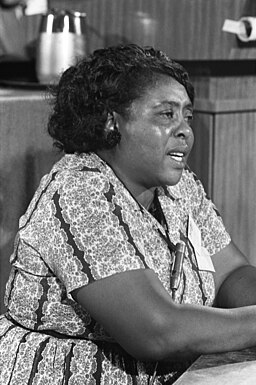
American civil rights leader Fannie Lou Hamer at the Democratic National Convention, Atlantic City, New Jersey, August 1964. Public domain photo.
2. Wangari Maathai saw women who needed firewood
Among her achievements
Maathai founded the Green Belt Movement to fight climate change and help women live sustainable lives. She won the Nobel Peace Prize in 2004.
The big problem
As a volunteer for women’s rights and environmental groups, Maathai saw that deforestation and commercial farming were especially devastating to rural women. They struggled to find clean water, firewood, food, and shelter. Planting trees locally, she realized, was a quick way to solve several problems at once.
Her first spark
Seven trees. Maathai gathered a small group of women to plant a handful of seedlings. That act drew support to pay women for tree planting, helping them earn income while restoring their environment.
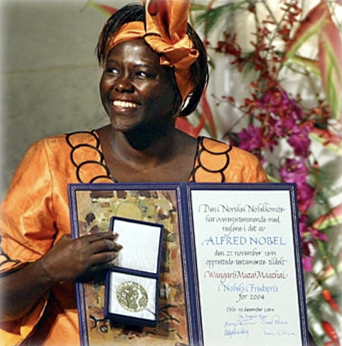
Wangaari Maathai receives the first Nobel Peace Prize awarded for environmental protection (2004) for decades of work with the Green Belt Movement.
3. Rachel Carson asked, “What are we doing to the Earth?”
Among her achievements
Carson wrote Silent Spring, which led to the ban of the pesticide DDT and the birth of the environmentalist movement.
The big problem
As a marine biologist and editor in chief at the U.S. Fish and Wildlife Service, Carson had long been alarmed about the dangers of pesticides and the chemical industry’s denial of them.
Her first spark
An article pitch. In 1958, Carson proposed a story to the New Yorker. But she had more to say than one article could hold. For four years, she researched and wrote Silent Spring. When the New Yorker serialized her book in 1962, it changed public understanding of environmental damage.
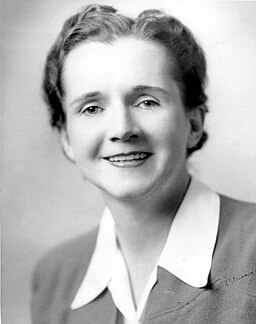
Rachel Carson, author of Silent Spring, official photo as Fish & Wildlife Service employee, circa 1940.
4. Dolores Huerta helped hungry families
Among her achievements
Huerta co-founded the United Farm Workers Association with César Chávez, organizing actions like grape boycotts that improved pay and working conditions.
The big problem
In the 1950s, California farm worker families lived on poverty wages. Policies kept pay low and unions weak. As a teacher, Huerta saw kids coming to school hungry and sick.
Her first spark
Thinking beyond the classroom. Huerta realized she could create more change by organizing workers than by teaching children. She began around kitchen tables and union halls, helping families navigate schools and healthcare.
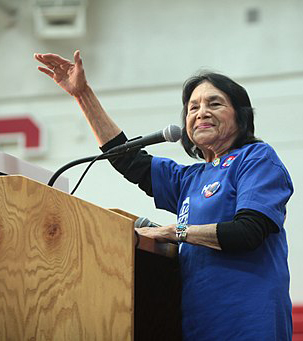
Dolores Huerta speaking at a campaign rally with former President Bill Clinton at Central High School in Phoenix, Arizona. Image: Gage Skidmore
5. Tarana Burke started talking to young girls
Among her achievements
Burke founded the #MeToo movement and built decades of work supporting survivors of sexual violence, especially Black girls.
The big problem
Working in youth civil rights programs in Alabama, Burke realized that nobody was helping girls recover from childhood sexual violence. As a survivor, she knew that girls needed to know they weren’t alone.
Her first spark
Saying “me too” to young Black girls. While leading workshops in the late 1990s, Burke used the phrase to create a space for survivors to connect and heal long before the phrase became a global movement.
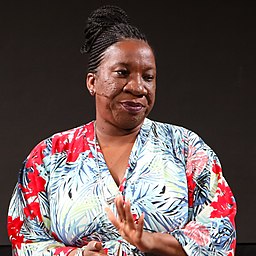
Tarana Burke at the 2018 Disobedience Awards. Image: Jon Tadiello
6. and 7. Marsha P. Johnson and Sylvia Rivera said “Not today” to police harassment
Among their achievements
Johnson and Rivera were pioneers of the LGBTQ+ rights movement and the movement for trans rights.
The big problem
In the late 1960s, LGBTQ+ people, especially trans women of color, faced brutal laws and police violence. They were pushed out of jobs and homes, and shelters wouldn’t take them in. They had very few safe spaces.
Their first spark
Standing their ground. When police invaded the Stonewall Inn on June 28 1969, Johnson and Rivera fought back. But while the Stonewall Rebellion was a turning point, the early gay rights movement still excluded trans people. The two friends co-founded STAR (Street Transvestite Action Revolutionaries), a mutual aid group and safe haven for LGBTQ+ youth. Their work began with care for those left out.
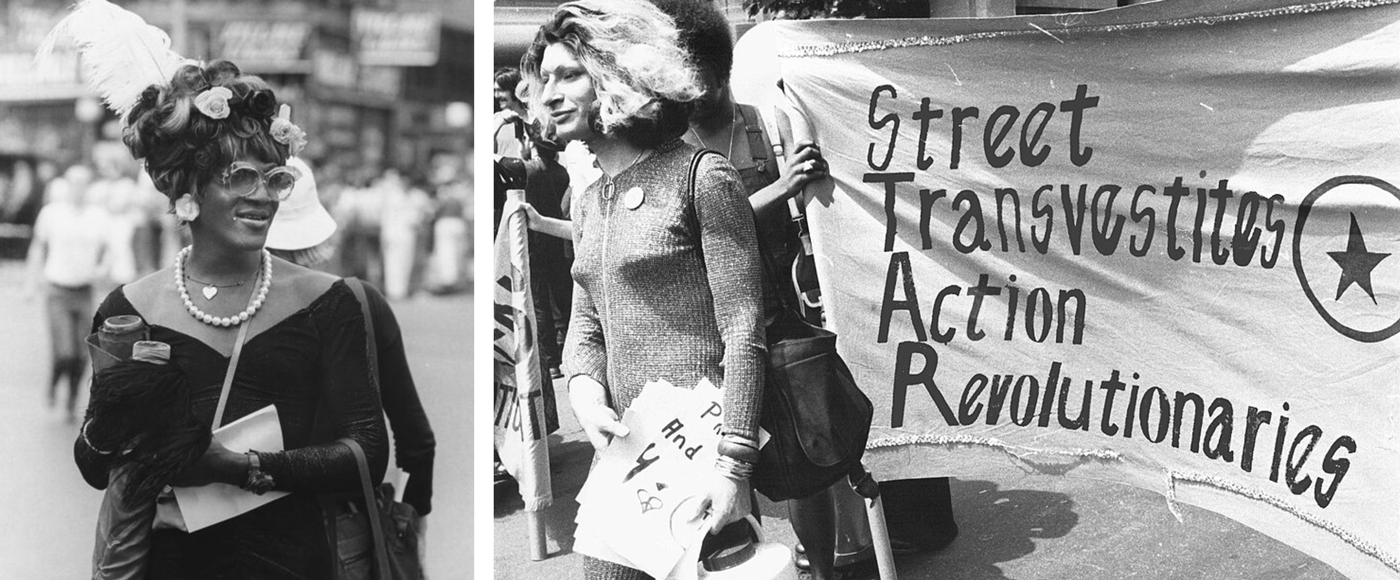
L: Activist Marsha P. Johnson in the 1970s; R: Activist Sylvia Rivera in 1970. Public domain images.
8. Ida B. Wells-Barnett stayed in her seat
Among her achievements
Wells-Barnett, better known as Ida B. Wells, was a journalist, anti-lynching activist, and women’s rights activist whose work set the stage for the Civil Rights movement and intersectional feminism.
The big problem
In the 1880s South, Jim Crow laws were a new threat. Legalized racial segregation was spreading quickly into schools, churches, and the transit system. Wells-Barnett was a 21-year-old teacher who commuted by train to her first job in Memphis.
Her first spark
Refusing to move. Seventy-one years before Rosa Parks, Wells-Barnett bought a first-class ticket and was ordered to move to the smoking car. She was assaulted and dragged from her seat. Wells-Barnett became one of the first people to challenge Jim Crow in court. She lost, but the fight drove her to become a journalist and activist.
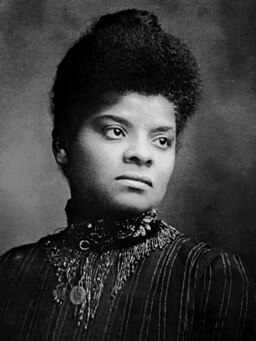
Journalist and activist Ida B. Wells, late 19th century. Public domain.
Each of these women started with one realization that nobody else is coming to the rescue. With one clear choice that broke the pattern and made people pay attention. History shifts when someone decides to act, even if the path forward isn’t clear.
